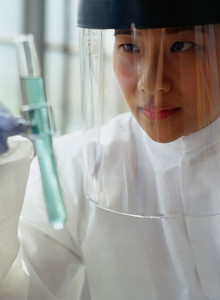As reported by Ms Nayantara Som in BioSpectrumIndia of 13 January 2010, biosimilars are said to be the next big cash cow for India. According to her, however, players have many knots to untangle before they can have a firm grip over the economics of the market.
Bionomics of biosimilars – India’s next big cash cow?
Biosimilars/General
|
Posted 02/03/2010
 0
0

Biopharmaceuticals continue to outperform the pharmaceutical market, with the US alone predicted to touch a figure of about US$60 billion by 2010. The latest agenda for many companies now is to utilise the opportunities in the biosimilar market. An increasing use of biologics in disease areas such as cancer, autoimmune and orphan diseases, in addition to healthcare-cost containment, has driven the growth of biosimilars.
Ms Som writes that in the short term, biosimilar-market growth will be driven by drug classes such as erythropoietin, filgrastim, human growth hormone (hGH) and insulin, but gradual expiry of patents will create significant market opportunities for developers through to 2016. Between 2012 and 2019, the market will see a patent expiry of a whopping US$60 billion of biotech drugs. As she writes, Amgen will be hit the most hard out of all the companies. Its blockbuster drug for anaemia, Epogen (epoetin alfa) – which had a sale of about US$2.5 billion in 2008 – will lose its patent in 2013. Of the other blockbuster drugs, Neupogen (filgrastim) will lose its patent in 2013, while the arthritis drug Enbrel (etanercept) will lose its patent in 2012. Epogen, Neupogen and Enbrel together account for half of Amgen’s total revenue. Companies like Merck & Co, Novartis and Pfizer are already on the run to make biosimilar versions of Epogen, while Pfizer is also looking at coming up with a biosimilar version of Sanofi Aventis’ Lovenox (enoxaparin).
According to Ms Som, India is not far behind as biosimilars spell big opportunities, especially for companies like Dr Reddy’s Labs, Ranbaxy, Biocon, Shantha Biotech and Intas Biopharmaceuticals, who are actively involved in the space. The Indian biosimilars market in 2008 was around about US$200 million, with an expectation to reach around about US$580 millions by 2012.
Ms Som reports that Mr Jay Desai, founder and CEO of Universal Consulting, said, “In India, the interest in biosimilars is additionally spurred on by multiple factors. Firstly, under the Trade Related Intellectual Property Rights (TRIPS) agreement, pre-1995 product patents were exempted, thus granting some biologics, the rights to continue manufacturing. Secondly, biotechnology drugs (besides insulin) are free from the government’s price-control act, allowing independence in price setting. There seem to be signs of acceptance of locally manufactured biosimilars among healthcare professionals within the country”. (see also Bionomics of biosimilars - Indian options for investors, Bionomics of biosimilars – EU and US markets not easy for India and Bionomics of biosimilars – Indian opportunities)
Reference:
Nayantara Som. Bionomics of Biosimilars. BioSpectrumIndia. 2010 January 13.
Source: BioSpectrumIndia
Research
Reaching ESG goals in pharmaceutical development
What is the future for the US biosimilar interchangeability designation
News
FDA approves Poherdy (first interchangeable pertuzumab) and Armlupeg (pegfilgrastim) biosimilars
EMA recommends approval for insulin glargine biosimilar Ondibta and denosumab biosimilar Osqay
Most viewed articles
The best selling biotechnology drugs of 2008: the next biosimilars targets
Global biosimilars guideline development – EGA’s perspective
Related content
Samsung Bioepis wins Pyzchiva case; Regeneron patent rulings threaten foreign biosimilars
Chinese biosimilars go global: growth, partnerships, and challenges
Stelara biosimilars enter US market with 85% discount in 2025
IFPMA publishes position on pharmacy-mediated substitution for biosimilars
Samsung Bioepis wins Pyzchiva case; Regeneron patent rulings threaten foreign biosimilars

Biosimilars/General Posted 30/07/2025
Chinese biosimilars go global: growth, partnerships, and challenges

Biosimilars/General Posted 30/04/2025
IFPMA publishes position on pharmacy-mediated substitution for biosimilars

Biosimilars/General Posted 21/03/2025
The best selling biotechnology drugs of 2008: the next biosimilars targets





